UPDATE: An eighteen month campaign to save the Great Barrier Reef from being included on the list of World Heritage sites that are considered in danger has been successful with a ruling at the 39th World Heritage Committee Forum in Bonn, Germany.
World Heritage Committee final decision praises Australia and unanimously rejects “in danger” listing for Great Barrier Reef #39WHCBonn
An Australian delegation managed to convince the 21 member countries to leave the reef off the list, but they will have to report back to the group with progress on the health of the reef.
In making the decision, member countries expressed their concerns about shipping routes through the reef and the dumping of spoil from maintenance dredging.
The committee said it was mostly impressed with the actions Australia had taken so far in improving reef health. The government now has until 2016 to show that its rescue plan is working and will have to report back in 2019 to prove that it has stopped the decline of the reef.
On reef protection: "We have been able to achieve in 18 months what would otherwise have taken a decade" #39WHCBonn
There was clear global concern about the future of the Great Barrier Reef, with Germany and South Korea particularly vocal.
Republic of Korea:Great Barrier Reef WHC Decision "We note the vulnerability of coral reefs to climate change challenges"#39WHCbonn #SOSreef
"We note the vulnerability of coral reefs to climate change challenges" said Korea's delegate, while Germany noted that the recently implemented dumping ban does not prevent the dumping of spoil from maintenance dredging.
So while Australia has avoided the "in danger" listing for now, it will get put on this list at the 2020 meeting if its value as a World Heritage listing is seen to have declined.
Reacting to the ruling, Greens environmental spokesperson Larissa Waters said, "it's clear the World Heritage Committee is worried about the reef's future and a number of specific concerns were raised during the meeting, including the need for adequate funding and legislation."
Australia has had a long and fraught relationship with the Great Barrier Reef. You could trace it back to a single moment in June 1770, when an outcrop of coral smashed through the hull of Captain Cook's ship, The Endeavour.
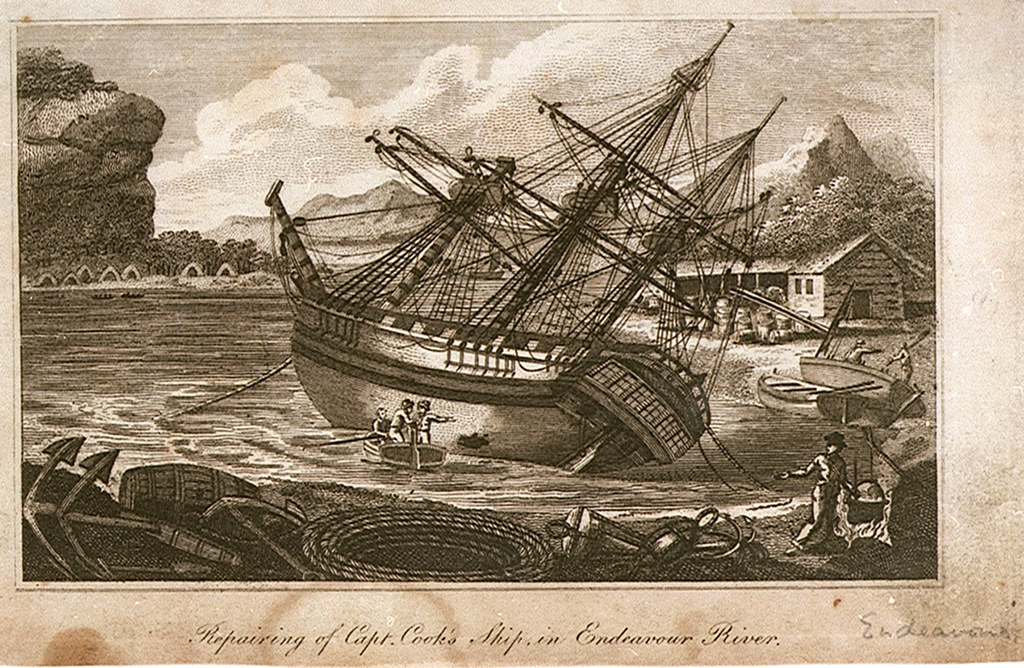
In an attempt to to explore the coast of northeastern Australia, the British explorer had a violent introduction to the world's largest living structure.
What looked like a sparkling underwater garden from above was in reality towers of ancient stone-like coral, raising a jagged middle finger at the intruders and splintering the ship's hull. Cook and his men were forced to dump more than 50 tonnes of precious cargo into the reef just to stay afloat.
In hindsight, it looks like a stark message for explorers to come: Back off.
Nearly 250 years later, and things were looking very grim for the Great Barrier Reef.
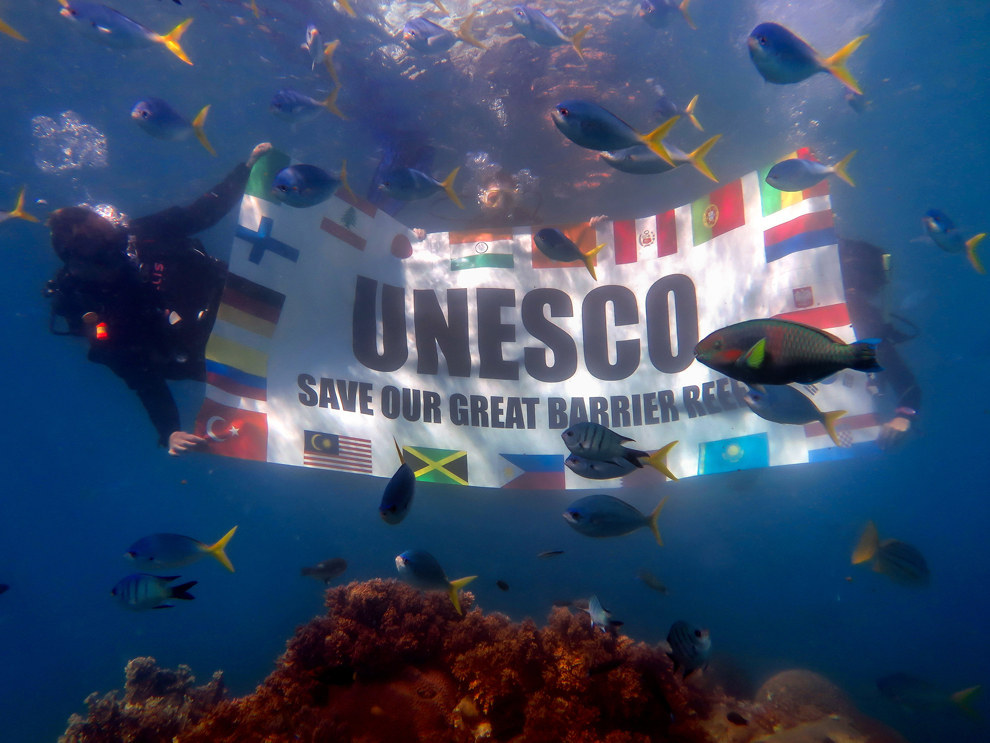
Rising sea temperatures, ocean acidification and swarms of crown-of-thorns starfish devouring the coral were already posing a significant threat to the health of the reef, destabilising the complex underwater ecosystem.
At the same time, coal and gas ports were popping up on the coasts surrounding the reef, dumping dredge spoil into the crystal-clear water and carving out routes for shipping.
So in 2012, the United Nations put its foot down, issuing a severe warning to the Australian government.
Either take drastic action to save the reef, or it would lose its prized World Heritage status and find itself on the "World Heritage In Danger" list.
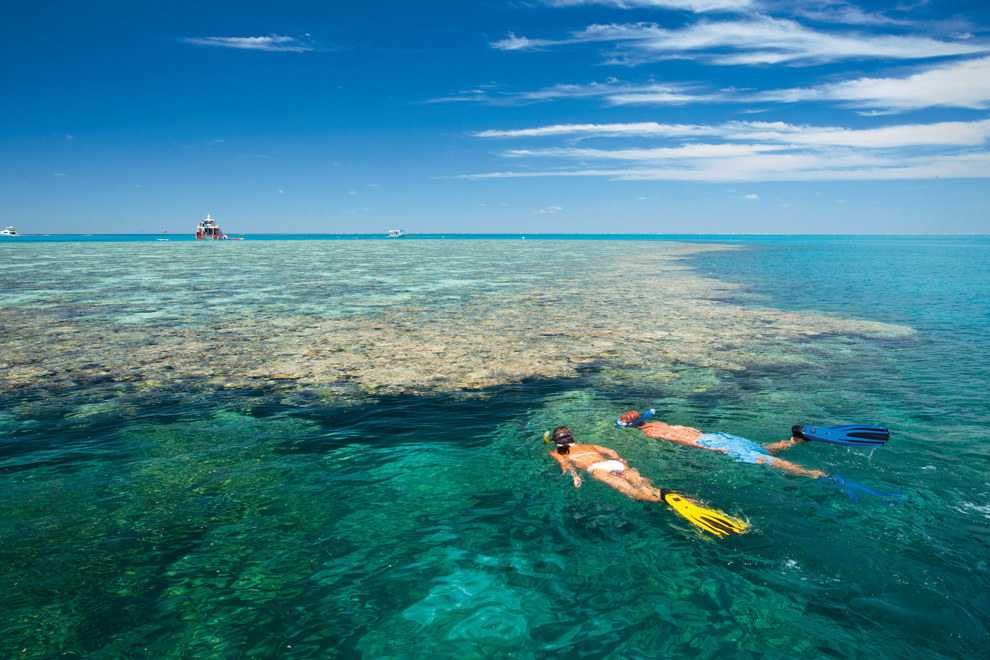
Apart from being an embarrassment to Australia if it was to happen, politicians say an "in danger" listing would have devastating effects on Queensland's tourism industry. They fear tourists won't want to visit if there's a perception that the reef is damaged.
Industries like tourism and fishing that rely on the reef contribute approximately $5.4 billion to the Australian economy each year and support around 69,000 jobs.
"Ultimately part of the reason we can put attention on the reef is the number of jobs it supports," Dr Steven Miles, Queensland's first Minister for the Great Barrier Reef told BuzzFeed News.
"Large parts of the Queensland economy are reliant on the worldwide perception of the reef. It means that people who hope to come and visit the reef might think it's not that special anymore and not worth the effort," he said.
Some described the report as the world putting Australia on probation. It was given specific recommendations to halt port development along the coast and review the way the reef was managed.
In defiance of the ruling, the federal government last year approved the expansion of the Abbot point coal port as well as a plan to dump three million cubic metres of dredge spoil inside the Great Barrier Reef Marine Park.
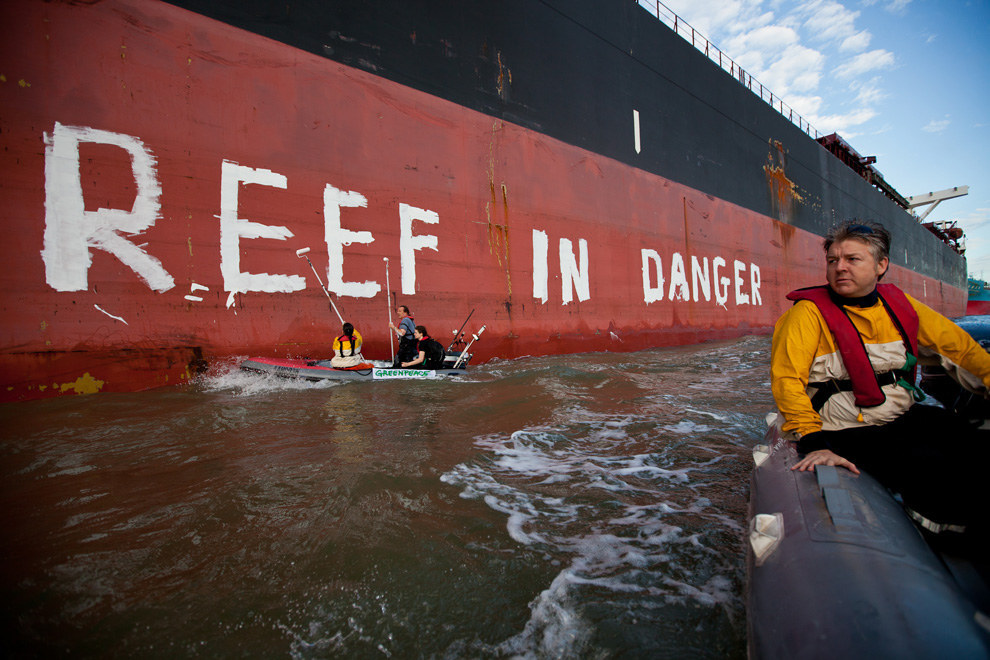
The decision was criticised by scientists and the World Heritage Committee.
Around the same time, the authority that manages the reef released a bleak report about the long-term future of the reef.
"Even with the recent management initiatives to reduce threats and improve resilience, the overall outlook for the Great Barrier Reef is poor, has worsened since 2009, and is expected to further deteriorate in the future," the GBRMPA said in its report.
With 21 countries deciding on the reef's heritage status, the issue was always going to go global, but celebrities such as Leonardo Di Caprio and William Shatner have shone a spotlight on the "devastation" of the reef.
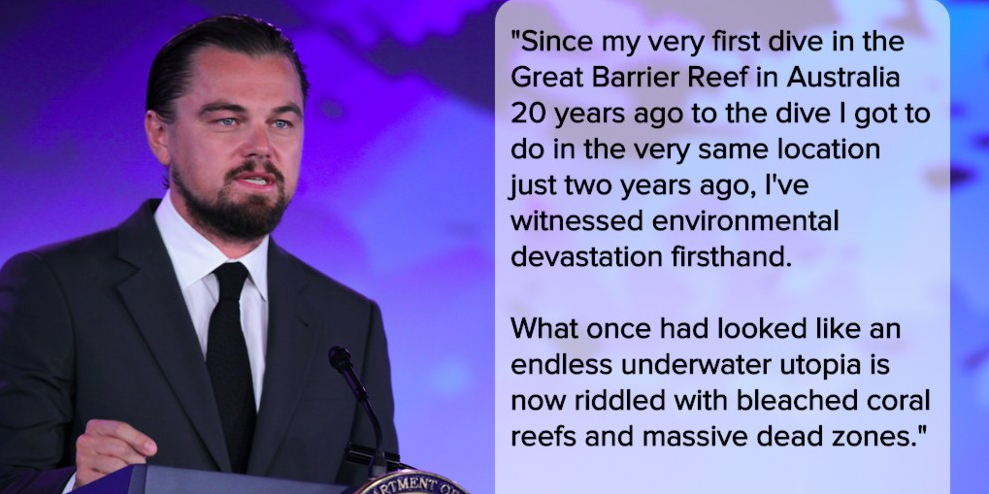
But Labor's Steven Miles, who assumed his position at the change of government in February this year, insists things are turning around.
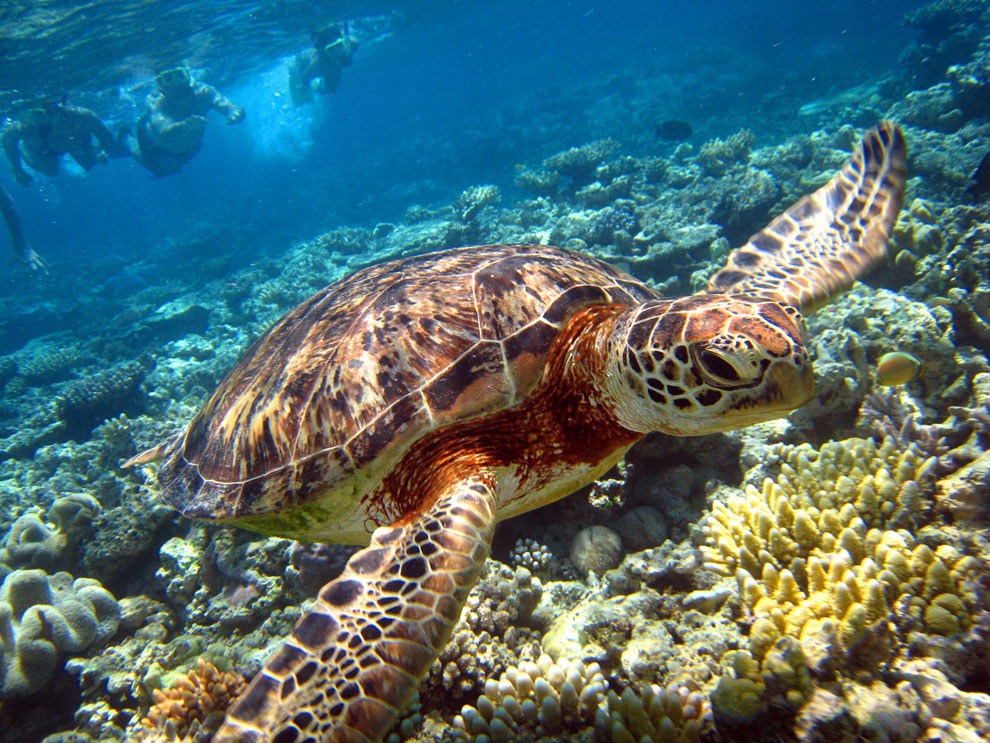
One of Labor's big promises during the Queensland election was to stand up to the mining companies and protect the reef.
In what has been hailed as a huge step forward for the health of the reef, the Queensland government has promised to ban the dumping of dredge spoil in the sea - one of the main concerns of the World Heritage Committee.
"The previous government allowed offshore dumping and [dumping] on nearby wetlands but we put a stop to both of those plans, and have proposed an alternative site to dispose of dredge spoil," Miles told BuzzFeed News.
They've set up an Office of the Great Barrier Reef to oversee management on different bodies working on protecting the reef, a ministerial taskforce of experts to provide advice, set water quality targets and released a long term plan with the federal government, called the Reef 2050 Long-Term Sustainability Plan.
That may be enough to get them off the hook with UNESCO, but experts have criticised the Reef 2050 Plan for failing to mention the effects of climate change and for financing the plan with offsets from fossil fuel developments.
"The government wants to have coal mines operating in 60 years' time, and still hopes to have a healthy reef," wrote Terry Hughes from the ARC Centre of Excellence for Coral Reef Studies at James Cook University in The Conversation.
"The science says otherwise: either we plan to adequately protect the reef and transition away from fossil fuels, or we abandon the reef and develop the world's largest thermal coal mines. We can't possibly do both."
The World Heritage Committee made a draft decision last month to not list the reef as in danger.
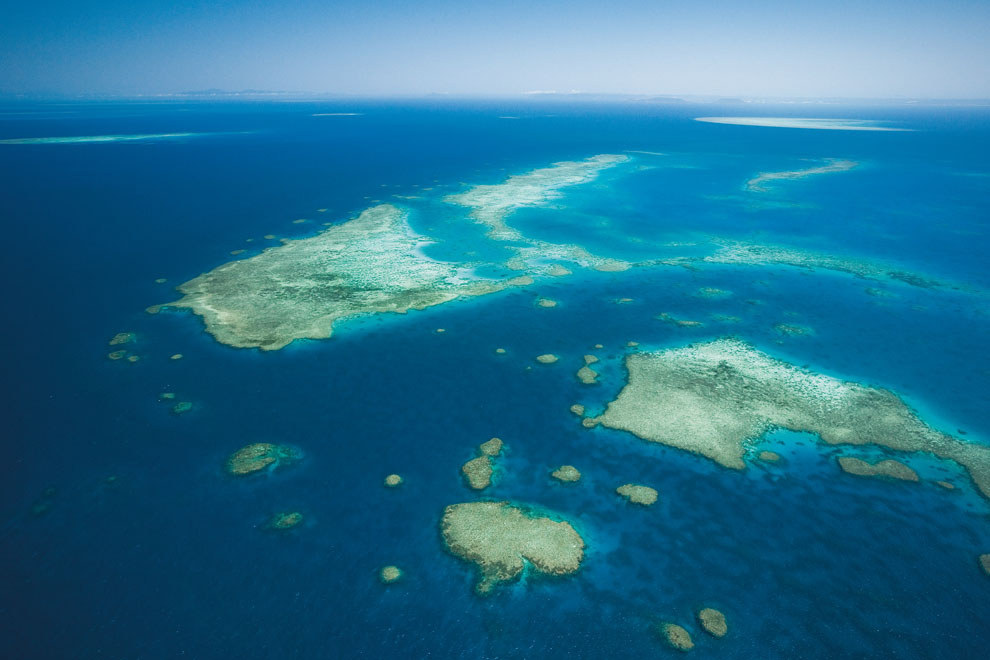
It was a positive sign, but the decision came with a stern warning.
"The overall outlook for the reef is poor," the draft decision read.
"Key habitats, species and ecosystem processes in the central and southern inshore areas have continued to deteriorate from the cumulative effects of these impacts," it added, citing climate change, poor water quality and coastal development as the main problems.
Environment minister Greg Hunt was keen to sell it as a win, describing it as an "overwhelming endorsement."
"The world has recognised that Australia has made huge steps in the last 12 months. More to be done, but this is a good result for the reef, it's a good result for Australia," he said in May.
To coax the World Heritage Committee into making a favourable decision, the federal government has really had to invest in the reef. Not just a promise of $2 billion over 20 years, but a charm offensive with representatives from the 21 member countries.
It was revealed in Senate estimates earlier this month that they had spent $140,000 on a reef tour for delegates, ambassadors and UNESCO staff, and an additional $80,000 on a trip to the reef for international journalists.
A delegation of 20 Australian representatives, including federal environment minister Greg Hunt, Steven Miles and the deputy Queensland premier have flown to Germany to seal the deal.

World leaders are gathering in Bonn, Germany for the annual meeting of the UNESCO World Heritage Committee, for the final decision on the reef.
Speaking before he left for Germany, Dr Miles said he was hopeful that the government would get the outcome it wanted on July 1st.
"This is our chance to have one last meeting with member countries and show them the progress we have made. All the ambassadors have been impressed with the change of tack from Queensland this year in implementing the plan so far, so I'm hopeful," he told BuzzFeed News.
And if they fail?
"If it was to be listed as in danger it could be jobs at risk, and we could lose some of those two million people who come to the reef each year."
They have the support from conservation groups such as the World Wildlife Fund in Bonn, who welcomed delegates to the conference with crocheted reef creatures including a not-to-scale Nemo.
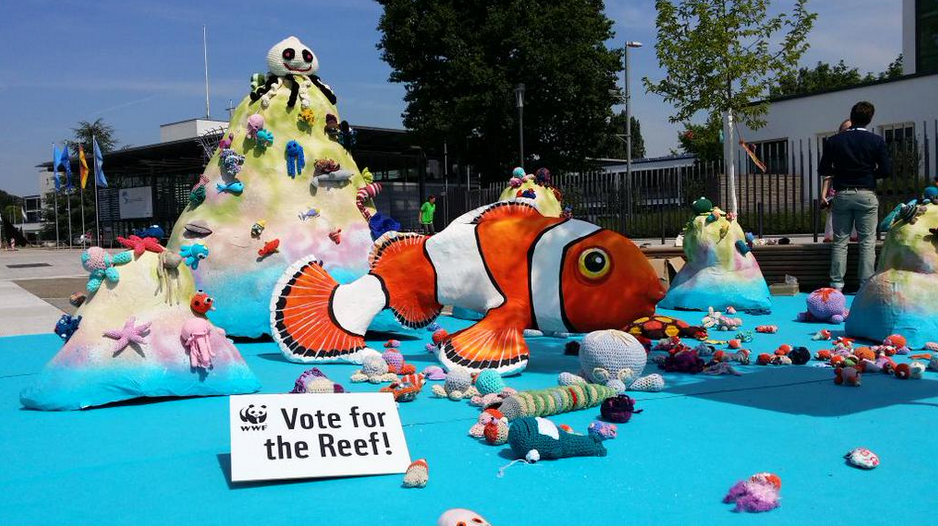
"WWF has serious concerns about the Reef and we support UNESCO's draft decision which keeps the pressure on the Australian government to turn their promises to protect the reef into real actions and results," said WWF Australia CEO Dermot O'Gorman.
"In reality Australia is being put on probation. The real work to turn around the decline of the reef starts now."
563,480 petition signatures, from 177 countries. Incredible. You drew the line on destruction of the Reef. #SOSreef
While Australia managed to spare the reef from the World Heritage Committee for now, whether the reef will be spared from destruction in the future is another question.
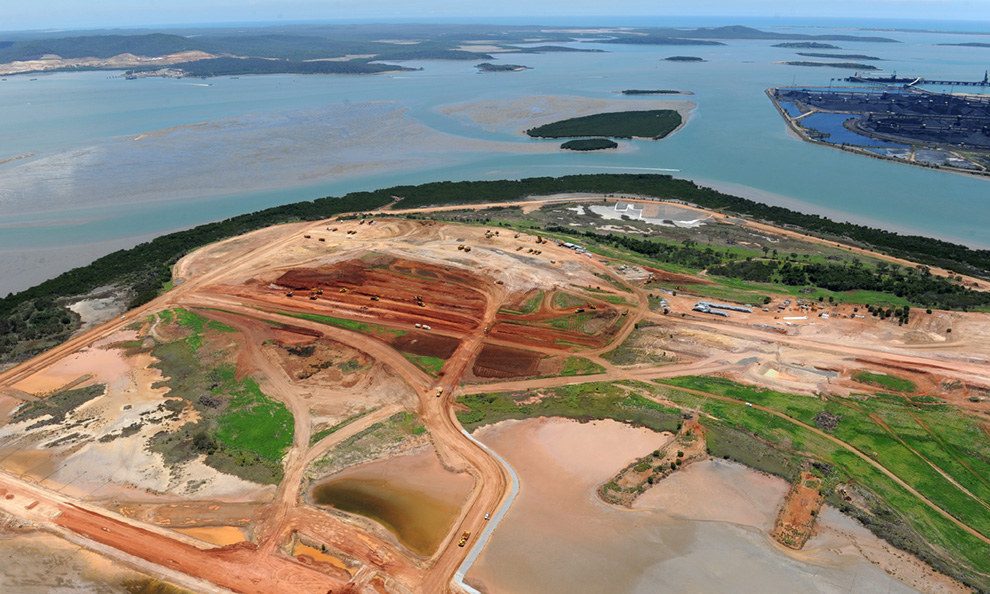
The decision has seen both state and federal governments leap into action and pass significant reforms, but ultimately the fate of the reef will depend on the ability of the world to halt climate change.
For that, Steven Miles admits "there's not much the Queensland government can do."
"Longer term the real threat is increased CO2 levels, it changes the Ph balance in the water and leads to ocean acidification," he said.
"We are supporting renewable energy in the state but what we really need is the Commonwealth to contribute to the global discussion, so we can reach a global agreement."
Environmentalists are furious that the Queensland government has sent out expressions of interest for companies to dredge at the coal port at Abbot Point, next to the reef.
For all the effort of governments, nothing can change the fact that both are encouraging the growth of coal ports in Queensland on the edges of the reef - actively participating in the process that we know causes global warming.
If members of the World Heritage Committee remain skeptical about Australia's long term commitment to the natural wonder that is the reef, it's easy to see why.
